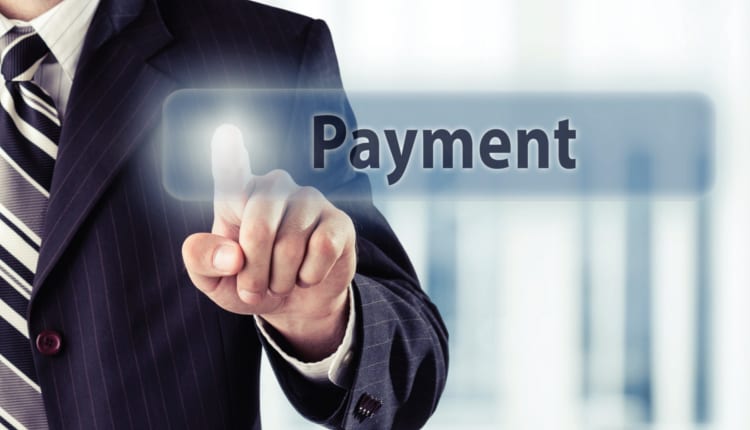The acceleration of all things digital has made Indians turn to digital and contactless payments, digital wallets, digital gift cards, and QR codes as the pandemic reshaped consumer behaviour, says a Blackhawk Network study. The survey, which mined the views of 13,000 global shoppers, also found that 69% of respondents will shop more frequently at retailers that accept digital payments.
India has emerged as a forerunner in mobile commerce adoption in comparison to its global counterparts. The survey revealed that 54% of the respondents will spend more money if they can use digital payment methods. Frequent online shopping is a trend that is seeing no downfall in 2021, with India ahead of other countries. The survey observes that 93% of Indian respondents prefer using digital wallets regularly as compared to their global counterparts’ average of 55%. 94% of Indian shoppers reported that digital wallets have made shopping easier and the vast majority (98%) have shopped at an online-only retailer in the past 12 months. The pandemic has given impetus to the adoption of digital payments in India, and consumers are increasingly embracing innovative ways of transacting using their mobile devices.
“The pandemic has been a major catalyst for shifting consumers’ spending and payments patterns that retailers cannot afford to ignore. In terms of mobile commerce adoption, our research shows that Indians are leading when compared to their global counterparts. The survey also shows that shoppers are spending more money and have a deeper connection with retailers that offer more seamless digital payment methods regardless of which channel they are shopping in. Overall, this presents an opportunity for retailers to help consumers make potentially temporary spending habits more permanent,” said Radhakrishna Venketeshwaran, VP, Head of Strategic Development Centre, Product & Engineering, Blackhawk Network.
Key trends in India identified in the report include:
- The eCommerce surge created shopper connection with retailers that offer digital payments
Adoption of digital wallets, digital gift cards, QR codes, and barcodes accelerated in the past 12 months. Survey data indicates these digital payment methods have an impact on how shoppers feel about a particular brand, and how likely they are to frequent that retailer. Compared to other countries, India leads by a margin when it comes to frequent usage of all given digital payment methods – PayPal, digital wallets, peer-to-peer apps, and barcodes or QR codes. 85% of respondents will shop more frequently at retailers that accept digital wallet, while 91% of respondents are more likely to shop at a retailer if they accept the digital payments that the respondents use.
- QR codes are making contactless payments a reality in India
Contactless payment innovations like QR codes are keeping Indian businesses moving, sans hands. QR codes, or barcodes on a mobile device, were being used more frequently at grocery stores and online-only retailers. On average, the likelihood of scanning a QR in India is greater than in any other country. 20% of Indian respondents used a QR code or barcode for the first time during the pandemic, and 69% report using them more frequently.
- Gift cards helped people connect to eCommerce in 2020
The gifting ecosystem in India is steadily thriving and is already witnessing a significant jump compared to last year. The trend around gifting has essentially moved towards digital, with close to 59% of gift card transactions taking place with online only merchants, and the rest being powered by offline stores. Digital gift cards also saw huge increase in popularity since they are an easy contactless payment option to send and use. A whopping 92% of Indian respondents believe they will overspend beyond the gift card value/redeemable points value compared to 77% of the global average. 75% of Indian respondents prefer to buy a digital gift card over a physical one, with 50% of them buying it for the sole purpose ‘to make purchases online.
- Hurdles to widespread digital payment adoption remain
With this rising trend, an equal focus should be laid on implementing an appropriate level of encryption and security in the digital payment ecosystem. While most regions considered secure checkout process (47%), easy checkout process (39%), or fast checkout process (36%) as the top 3 important factors when making a payment, countries that deem these factors as less important include India, Netherlands, and Australia. In India, usage of peer-to-peer payment apps is almost as common at online only retailers (49%) as it is at grocery stores (44%) and department stores (41%). India ranked lowest (13%) among all countries in choosing ‘secure checkout process’ as the most important factor when making a payment.
- In-store shopping will rebound
Despite eCommerce’s boom during the pandemic, in-store shopping will rebound globally as consumers have missed the in-store shopping experience. 33% of Indian shoppers surveyed rank the ability to see and touch items in-store before making a purchase as critical. Four in ten respondents believe they will be shopping online more frequently in 2021 and this goes up to six in ten in India and Brazil. Indian shoppers have increasingly embraced home deliveries ever since the pandemic started with 23% paying online as compared to 12% of respondents globally. 51% of Indian respondents are inclined to continue this behavior.
“Apart from the widespread adoption of mobile wallets, digital gift cards, rewards, and loyalty points, consumers are increasingly seeking retailers that have embraced digital and contactless payments,” said Theresa McEndree, global head of marketing, Blackhawk Network. “The pandemic has intensified the demand for digital wallets as contactless payment is reckoned as the new normal. India being a very high cash-driven market, the digital payment industry is still very nascent, yet fast-evolving. Opportunities for retailers have increased multi-fold in the last year. Consumers are drawn to retailers that offer fast, seamless, and secure digital payments. As we start to hit more of a stride in our economic recovery, the winners will be the merchants that cater to the everyday digital payment preferences of today’s shopper.”

